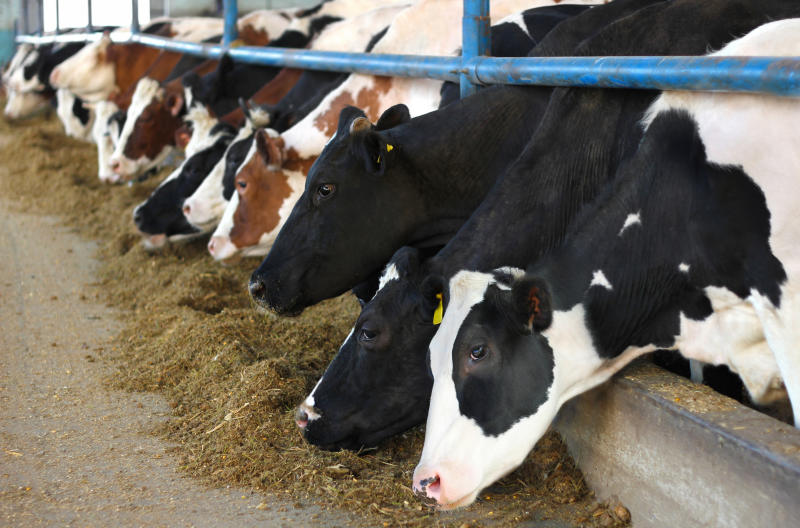- While marking the last stages of the preparation for the vaccination exercise, the State Department of Livestock Development has held a meeting with all the County Directors of Veterinary Services (CDVS), the Council of Governors (COGs), and the County Executive Committees (CECs) in charge of Livestock to plan for the exercise.
A nationwide cattle, goats and sheep vaccination is intended kick off next week. The campaign whose aim is to combat trans-boundary diseases targets 22 million cattle and 50 million goats and sheep. The diseases targeted by the state is Foot and Mouth Disease (FMD) and Pestes des Petit Ruminantes (PPR).
Foot and Mouth Disease is a severe, highly contagious viral disease which affects cattle, swine, sheep, goats and other cloven-hoofed ruminants. The disease was initially described in the 16th Century and was the first animal pathogen identified as a virus. Recent outbreaks of this disease in developed and developing countries have increased concern of governments worldwide.
Pestes des Petit Ruminantes (PPR) also known as sheep and goat plague and is highly contagious in small ruminants. According to Food and Agriculture Organization of the United Nations, once the disease is introduced, it can infect up to 90 percent of an animal heard and kills from 30 to 70 percent of infected animals.
While marking the last stages of the preparation for the vaccination exercise, the State Department of Livestock Development has held a meeting with all the County Directors of Veterinary Services (CDVS), the Council of Governors (COGs), and the County Executive Committees (CECs) in charge of Livestock to plan for the exercise.
Speaking in Nairobi, Principal Secretary (PS) for Livestock Development Jonathan Mueke insisted that the livestock sector in the country needed to be elevated in order raise the economy of the country.
Read More
He highlighted some areas of focus which included breed improvement which increases genetic quality thus increased productivity and disease resilience in livestock, animal feed which addresses feed availability and quality thus ensuring optima growth and health, and disease control which urges farmers to embrace livestock vaccination and veterinary services.
Mueke was concerned about Kenya’s meat exports losing value due to inadequate vaccination and health certifications. He noted that Kenyan meat is sold at lower prices in the international markets like that of Dubai and Saudi Arabia and urged farmers to embrace the upcoming vaccination.
“Strengthening veterinary services prevents animal losses, ensures food security and adherence to international meat standards which will in return enable Kenya to compete in global meat markets,” Mueke said.
Last year while announcing the planned vaccination, the then former Cabinet Secretary for Ministry of Agriculture and Livestock Development, Dr. Andrew Karanja cautioned farmers to abstain from misleading information about the vaccines and their sources terming them conspiracy theories.
“Vaccines have had and continue to have a major role in protecting both animal and public health. It reduces animal suffering and the need for antibiotics to treat food and animals,” said Dr.Karanja.
The former CS assured Kenyans that the vaccines to be used will not be imported but will be sourced from Kenya Veterinary Vaccines Production Institute (KEVEVAPI), insisting that the Institute has more than enough vaccines needed for the exercise.
While emphasizing on the need for farmer education, Senior Deputy Director of Veterinary Services, Dr. Michael Cheruiyot, said that politicizing the exercise has in the past caused low achievement in the numbers of livestock vaccinated.
“Last year, we only vaccinated 54,000 cattle, which fell short of the anticipated 2.2 million. The adoption of mass vaccination is important as well as farmer sensitization,” said Dr. Cheruiyot.










